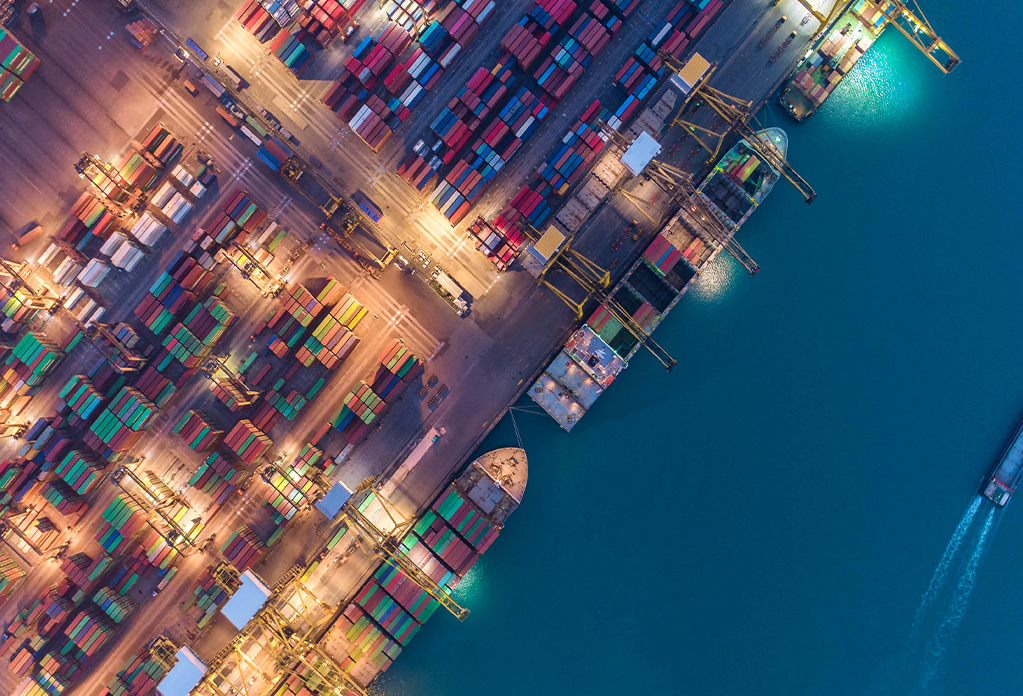
For many, the risks of modern slavery in logistics centre around the idea of people found in the back of lorries.
Although this type of activity can result in people being victims of modern slavery, it is only one small aspect.
The risks that modern slavery cases pose not only have dire consequences for workers but can also have a significant impact on any businesses involved.
So, where are the biggest risks of modern slavery in the logistics, warehouse and transportation sectors, and how can people be made more aware them?
Demand for labour
The significant demand for labour currently seen within the logistics industry is making it a high-risk environment for modern slavery.
Whilst there has been a consistent increase in online shopping in recent years, the recent pandemic saw a surge in this kind of consumerism. This creates a need for more workers in the logistics, warehouse distribution, and transportation sectors, a need that often cannot be fully met.
As labour shortages take hold, the risk of modern slavery increases because businesses take short cuts to secure the temporary labour they need.
Although the need for workers has increased, the number of workers able to fill these roles has decreased. Brexit has created at least some of these labour shortages, reducing the amount of migrant workers available – staff that many companies have historically been reliant on.
This desperate need for labour is making the industry vulnerable to unethical recruitment practices, not necessarily intentionally, but through sometimes hurried and superficial approaches.

Transient workforce
Any sector with a prevalence of temporary labour is more prone to modern slavery and worker exploitation. Logistics is just one of those sectors.
When people come to a business as a temporary employee, there’s often a third party involved – usually a recruitment agency. This is where the lines can blur, as it’s common for illegitimate or rogue recruitment agencies to provide staff into these sectors – staff that are being exploited by these parties or individuals.
Whenever a third party is involved, there is an increased risk of modern slavery. This is because businesses can’t always be sure whether the agencies or suppliers they are working with are meeting their compliance obligations, and mitigating the risks of worker exploitation. It’s also hard to keep on top of who they are working with too, which then extends the network of risk.
Businesses that use a lot of temporary labour should be extra vigilant about their workforce in order to avoid these risks.
Not exercising due diligence
There is a real pressure on industries, such as logistics, to meet demand. Businesses need to have the right workforce and getting those workers – at whatever cost – can sometimes take priority over conducting appropriate checks.
This can mean that due diligence is not given the priority it needs. If you are not undertaking appropriate due diligence, then you put not only your company at risk. It can also have implications for those who are working in your supply chain, particularly those who are perhaps even two or three steps removed from your decision-making processes.
Seasonal demands
The logistics industry is often drastically affected by seasonal demands. Using the Christmas period as a prime example, labour is required quickly and in large doses, but only for a short period.
This demand for temporary labour increases the pressure to recruit workers quickly – so businesses can continue to operate.
When businesses are desperate for labour and when these needs can’t be met, usual recruitment protocols might be neglected. Workers may be recruited via rogue umbrella agencies or bogus third parties, and the necessary checks may not be made to confirm a person’s identity or right to work. This increases the risk to the worker and your business.
Long supply chains
Logistics has, by nature, very long and complex supply chains, with plenty of employment opportunities, but a higher risk of worker exploitation. The more people a business works with, the more difficult it becomes to keep on top of everyone’s working practices. In logistics especially, labour spreads both nationally and internationally, and is a complex web of relationships and interactions.
The focus can no longer be on internal labour standards alone, but on what your suppliers and their suppliers are doing.

Not having a clear reporting and escalation policy
Having a clear reporting and escalation policy in place is important.
It’s vital for everyone working in the business to know about the policy and what they can do if they have concerns about themselves or someone else.
This will ensure that everyone has an understanding of what to do and where to go if potential issues do arise. Do you have someone in the business who is responsible for dealing with this kind of issue? Do you have processes in place to make sure you know what to do if something concerning is spotted?
These are the questions you must ask. When the right procedures are in place, any potential cases of modern slavery can be dealt with appropriately. You can seek help to remediate the situation, learn from what has happened, and take action to prevent it from happening in the future.
Need help combatting the risks?
There’s a lot of risk within the logistics, transportation, and warehouse distribution sectors. These problems are not easy to solve, but with the right help, your business can become better at identifying, preventing, and reducing them.
If your company needs help with reporting and escalation policies, worker training and engagement, or developing its modern slavery statement, Unseen Business can help. We offer expert advice, guidance and support, drawing on real life cases studies we see through the Modern Slavery & Exploitation Helpline.
Get in touch with us today to discuss how we can help you.


